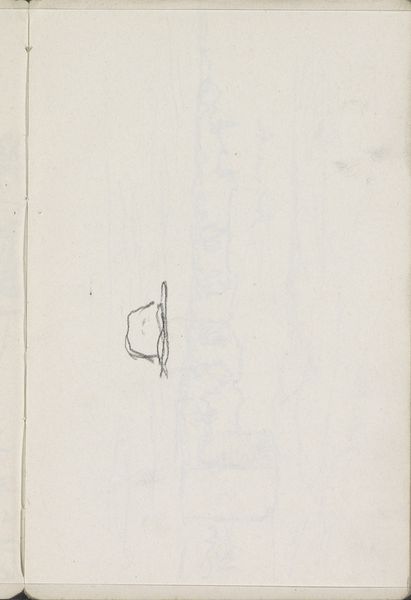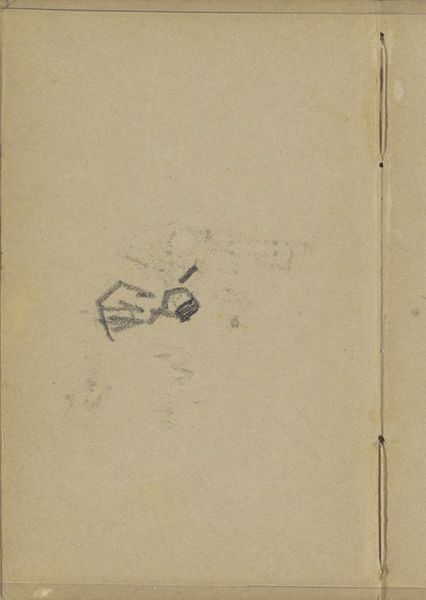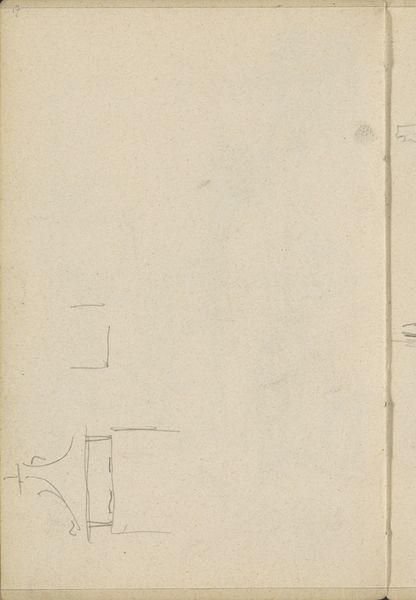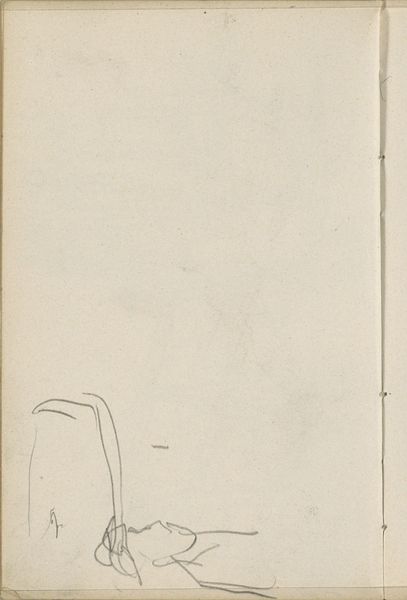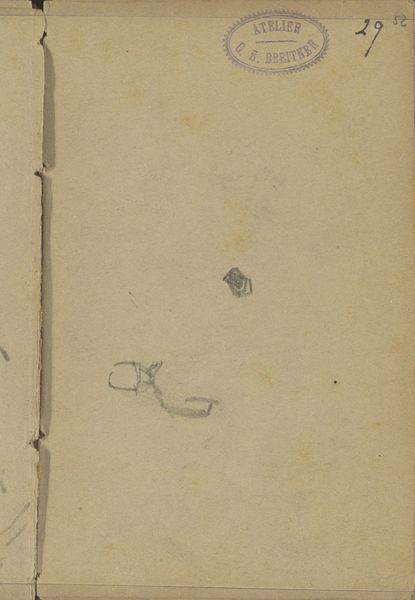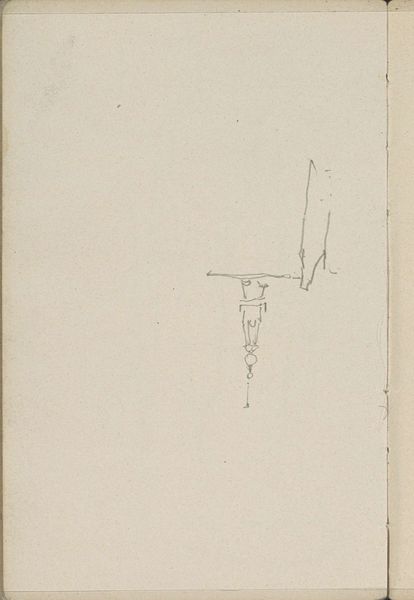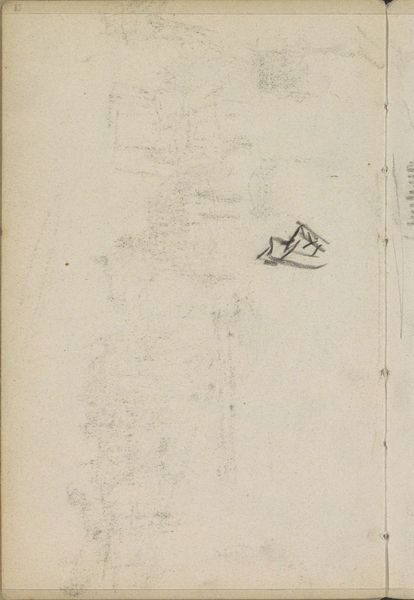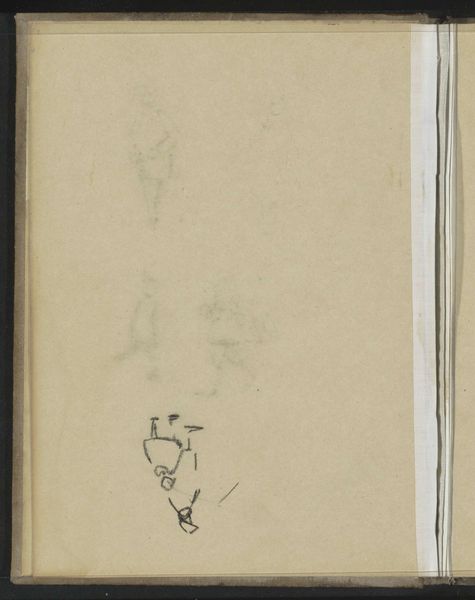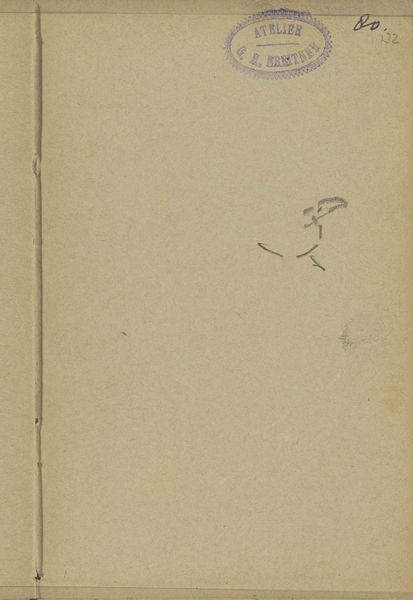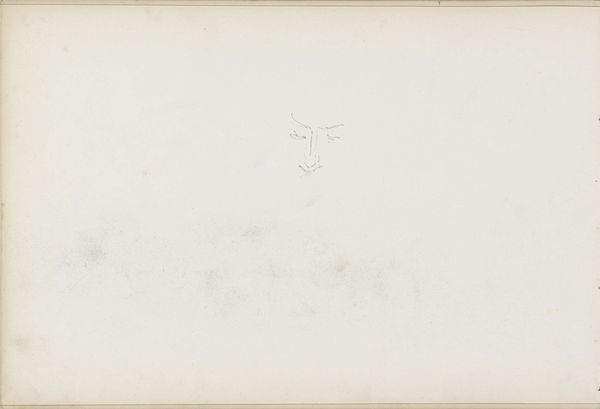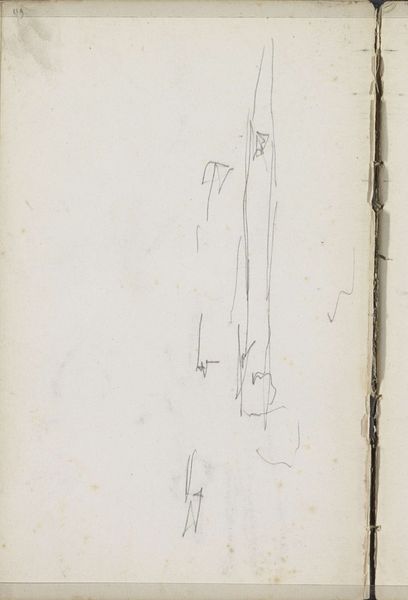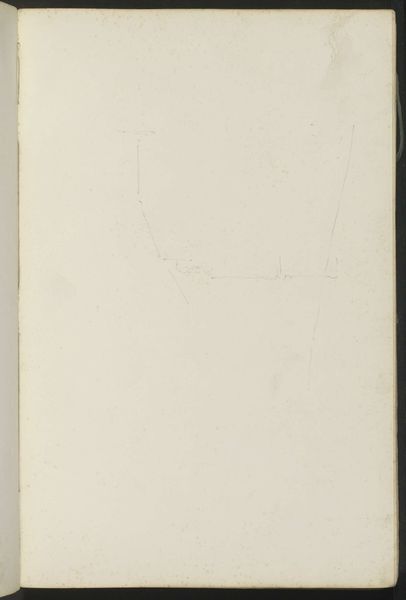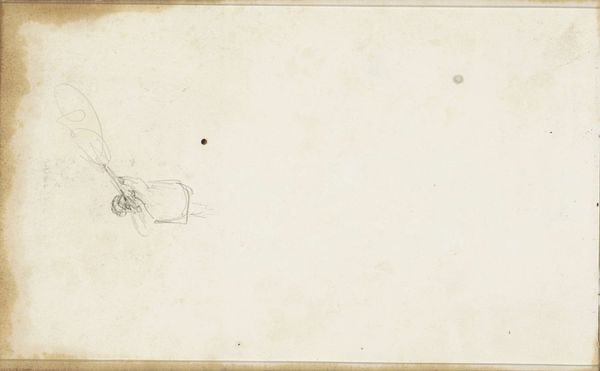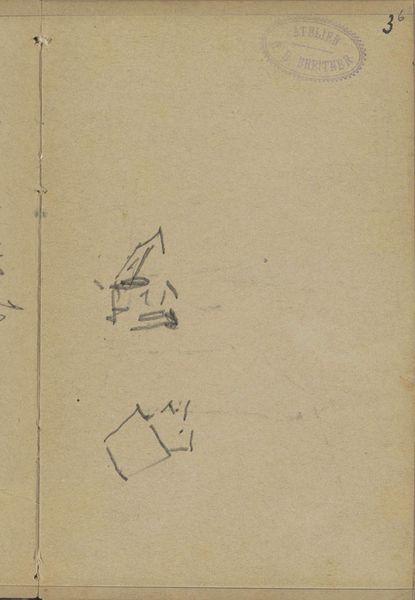
Copyright: Rijks Museum: Open Domain
Curator: This sketch, rendered in pencil, is titled "Twee hoofden," or "Two Heads." It was conceived by George Hendrik Breitner sometime between 1900 and 1923, and is part of the Rijksmuseum's collection. Editor: It’s interesting how little information is given in the sketches; only two heads are positioned almost like two graphic symbols, sparsely placed in the visual field of the work. It is rather strange—unsettling even, I would say. Curator: Consider it in light of the impressionistic style that Breitner was associated with. He was much more concerned with capturing fleeting moments and visual impressions than with meticulous detail or photographic realism. Editor: True. And there’s an apparent lack of interest here in the individualization of his subject—if they are meant to be perceived as human figures. I almost don't feel an affective connection to them; I'm interested in how the lack of historical background of these sketched "heads" evokes some kind of raw response in the spectator's imagination, forcing an individual projection to occur. Curator: Exactly! The beauty lies, from a formalist's perspective, in how Breitner's technique is foregrounded—the visible pencil strokes, the blank space that is itself active. You observe the hand of the artist making and inventing rather than mimicking reality. Editor: It reflects the social atmosphere too, don’t you think? There is a certain hollowness to how quickly Breitner executes these strokes. It also somehow reflects how the artist positions the city in his work. Curator: How so? Editor: There is some kind of correlation to be observed in the anonymity of the city-dweller and the simplification, almost schematization, of his two anonymous "hoofden" figures in the city. Both operate on some kind of flattened plane, as components of an industrial landscape rather than sentimental, bourgeois portraiture of his era. Curator: A compelling reading, truly. Looking at this sketch with fresh eyes now, I'm also intrigued by how little it offers while, conversely, providing so much fodder for intellectual inquiry. Editor: Agreed. There is power in this reduction.
Comments
No comments
Be the first to comment and join the conversation on the ultimate creative platform.
